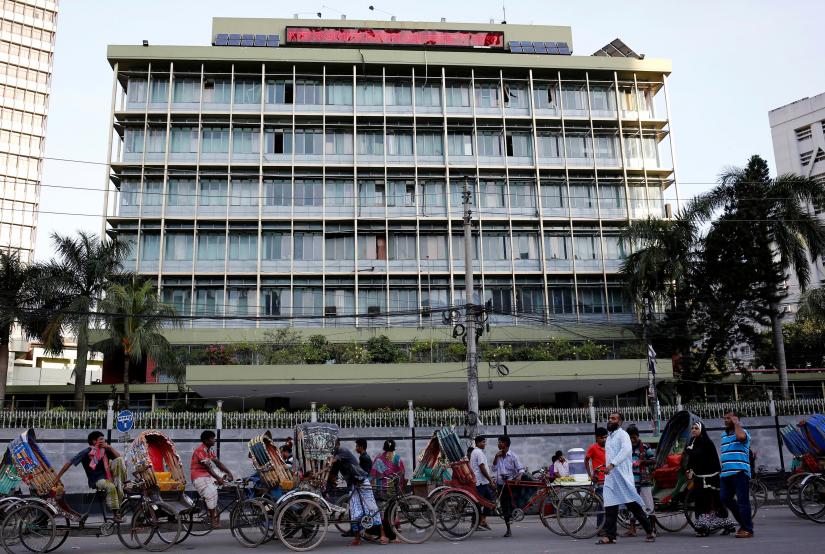 Bangladesh Bank has started gathering information about people who have received loans, loans that were waived and those who failed to pay loans on time in the last three years.
Bangladesh Bank has started gathering information about people who have received loans, loans that were waived and those who failed to pay loans on time in the last three years.
In this regard, letters have been sent to the banks from the central bank.
Several inspection teams have been formed and the inspection is being carried out by a Deputy General Manager of the Financial Integrity and Customer Service Department.
An MD of a private bank said: “Central bank has asked for information about people who got loans in the last three years.”
Central bank spokesperson and executive director, Sirajul Islam, added: “This is part of central bank’s initiative to bring down default loan.”
If needed, banks will be inspected by central bank teams.
The bank has asked for list of defaulters of the last three years and wanted to know of the steps that have been taken to recover the loans.
The bank has also asked for details about big loan takers.
Meanwhile, last April, certain changes were brought to the loan policy which will be implemented next June.
Earlier, planning minister, AHM Mustafa Kamal, said: “Loan defaulters will be able to pay back at 9 per cent interest. But for this, they will have to submit a 2 percent of the money.”
Bangladesh Bank teams will inspect 11 banks: Janata, AB, Al Arafah Islami, One Bank, NCC, BRAC, MTB, Shahjalal, Southeast, Mercantile, and Eastern bank.
Those who are defaulters will get a chance for re-scheduling with a time limit of 12 years. Of this, they won’t have to pay any installment in the first two years.
As per central bank’s information, in 2018, Tk 232.1 billion was rescheduled and another Tk 32.17 billion was struck off.
Former governor of Bangladesh Bank, Dr Salehuddin Ahmed, observes: “The banking sector is in disarray and this sector has to be brought under good governance. Once there is proper governance, default loan will fall automatically.”
He also said that instead of giving facilities to defaulters, benefits should be given to those who return loans on time.
“There is a section which always seeks out ways to get re-scheduling and to show lower amount of default loan, banks provide re-scheduling to big clients.”
 Business
Business
41425 hour(s) 57 minute(s) ago ;
Evening 08:51 ; Tuesday ; Jul 08, 2025
Central bank seeks loan details from banks
Send
Golam Mowla
Published : 09:30, May 06, 2019 | Updated : 10:46, May 06, 2019
Published : 09:30, May 06, 2019 | Updated : 10:46, May 06, 2019
0 ...0 ...
/tf/
Topics: Top Stories
- KOICA donates medical supplies to BSMMU
- 5 more flights to take back British nationals to London
- Covid19: Rajarbagh, Mohammadpur worst affected
- Momen joins UN solidarity song over COVID-19 combat
- Covid-19: OIC to hold special meeting
- WFP begins food distribution in Cox’s Bazar
- WFP begins food distribution in Cox’s Bazar
- 290 return home to Australia
- Third charter flight for US citizens to return home
- Dhaka proposes to postpone D8 Summit
Unauthorized use of news, image, information, etc published by Bangla Tribune is punishable by copyright law. Appropriate legal steps will be taken by the management against any person or body that infringes those laws.
Bangla Tribune is one of the most revered online newspapers in Bangladesh, due to its reputation of neutral coverage and incisive analysis.
F R Tower, 8/C Panthapath, Shukrabad, Dhaka-1207 | Phone: 58151324; 58151326, Fax: 58151329 | Mob: 01730794527, 01730794528






